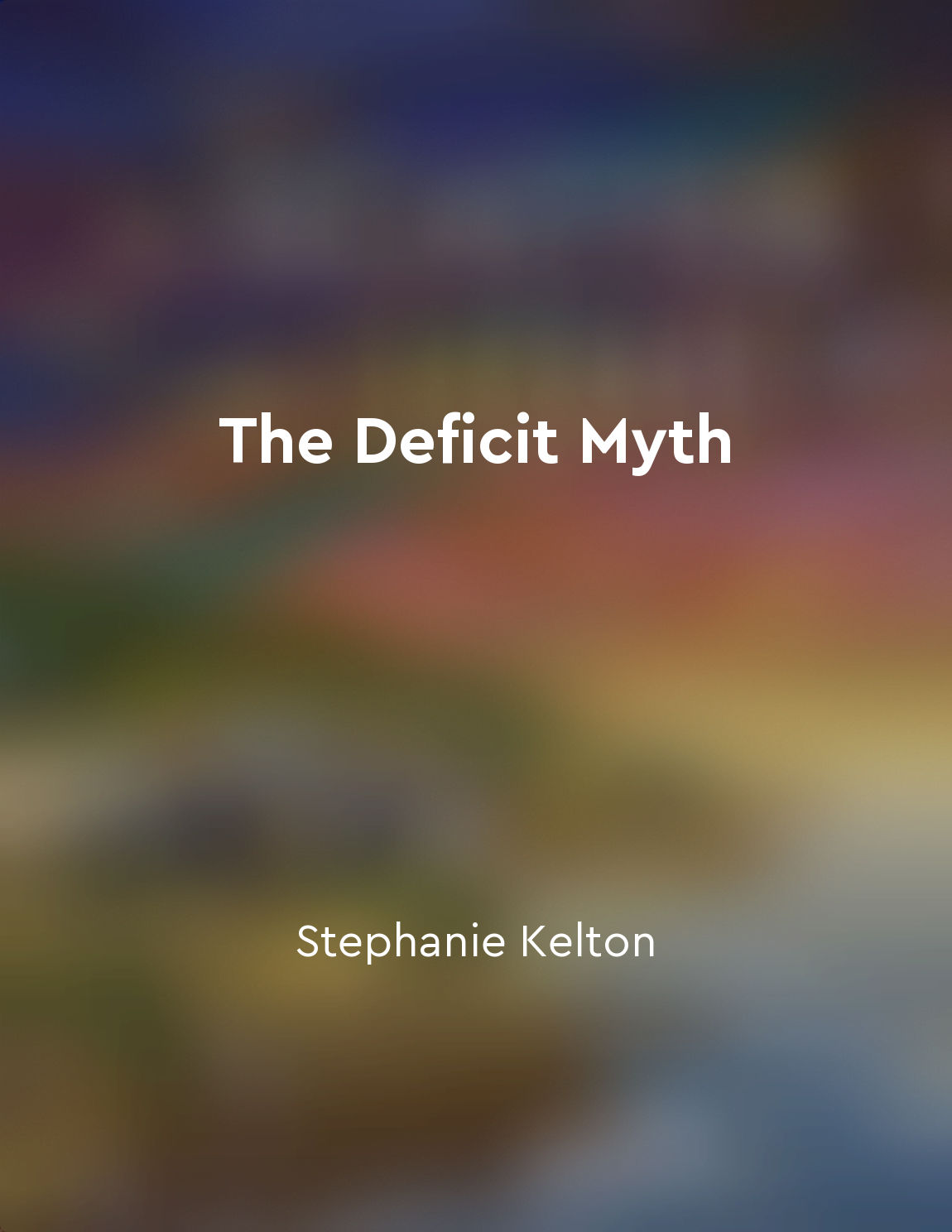Government plays a role in regulating the economy from "summary" of The Making of Economic Society by Robert L. Heilbroner,William Milberg
The economy is not a self-sustaining, self-regulating entity. Left to itself, it has a tendency to fluctuate wildly, creating booms and busts that can wreak havoc on people's lives. In order to prevent such chaos, governments around the world have taken on the responsibility of regulating their economies. This involves a range of activities, from setting interest rates to controlling the money supply to imposing taxes and tariffs. By regulating the economy, governments can help ensure stability and growth. For example, when the economy is in danger of overheating, leading to inflation and asset bubbles, the government can raise interest rates to cool things down. On the other hand, when the economy is in danger of stagnating, the government can lower interest rates to stimulate spending and investment. Governments also play a crucial role in redistributing wealth and resources within a society. Through progressive taxation and social welfare programs, they can help ensure that wealth is more evenly distributed and that the most vulnerable members of society are taken care of. This not only promotes social justice but also helps to sustain economic growth by ensuring that all members of society have the means to participate fully in the economy. However, government intervention in the economy is not without its challenges. Critics argue that government regulation can stifle innovation and entrepreneurship, leading to slower growth and less prosperity. They also point out that government policies are not always effective, and that they can sometimes have unintended consequences that harm the economy rather than helping it. Despite these challenges, the consensus among economists is that some level of government intervention in the economy is necessary. While the exact form and extent of this intervention may vary depending on the country and the historical context, the basic principle remains the same: governments play a crucial role in regulating the economy to ensure stability, growth, and social justice.Similar Posts

Interest rates impact borrowing and spending decisions
Interest rates play a critical role in influencing individuals' and businesses' borrowing and spending decisions. When interest...
Commodification leads to social upheaval
In the midst of the fervent embrace of market forces, the process of commodification takes hold, transforming social relations ...
Monetary policy
Monetary policy plays a crucial role in shaping the economic conditions of a nation. It refers to the actions taken by a centra...
Taxes and subsidies are tools used by governments to influence economic behavior
Taxes and subsidies are important tools that governments use to influence economic behavior. Taxes are charges imposed by the g...
Equilibrium plays a crucial role in market stability
Equilibrium is a fundamental concept in economics. It represents a state where supply and demand are balanced, leading to stabl...
Centralized power perpetuates oppression
The concentration of power in the hands of a few individuals or a central authority has historically led to the oppression of i...

The government can create money to fund important programs
The government has the power to create money, a fact that is often overlooked or misunderstood in discussions about how to pay ...
The idea of meritocracy is flawed
The concept of meritocracy, the idea that individuals rise to the top based on their talent and hard work, is prevalent in capi...
